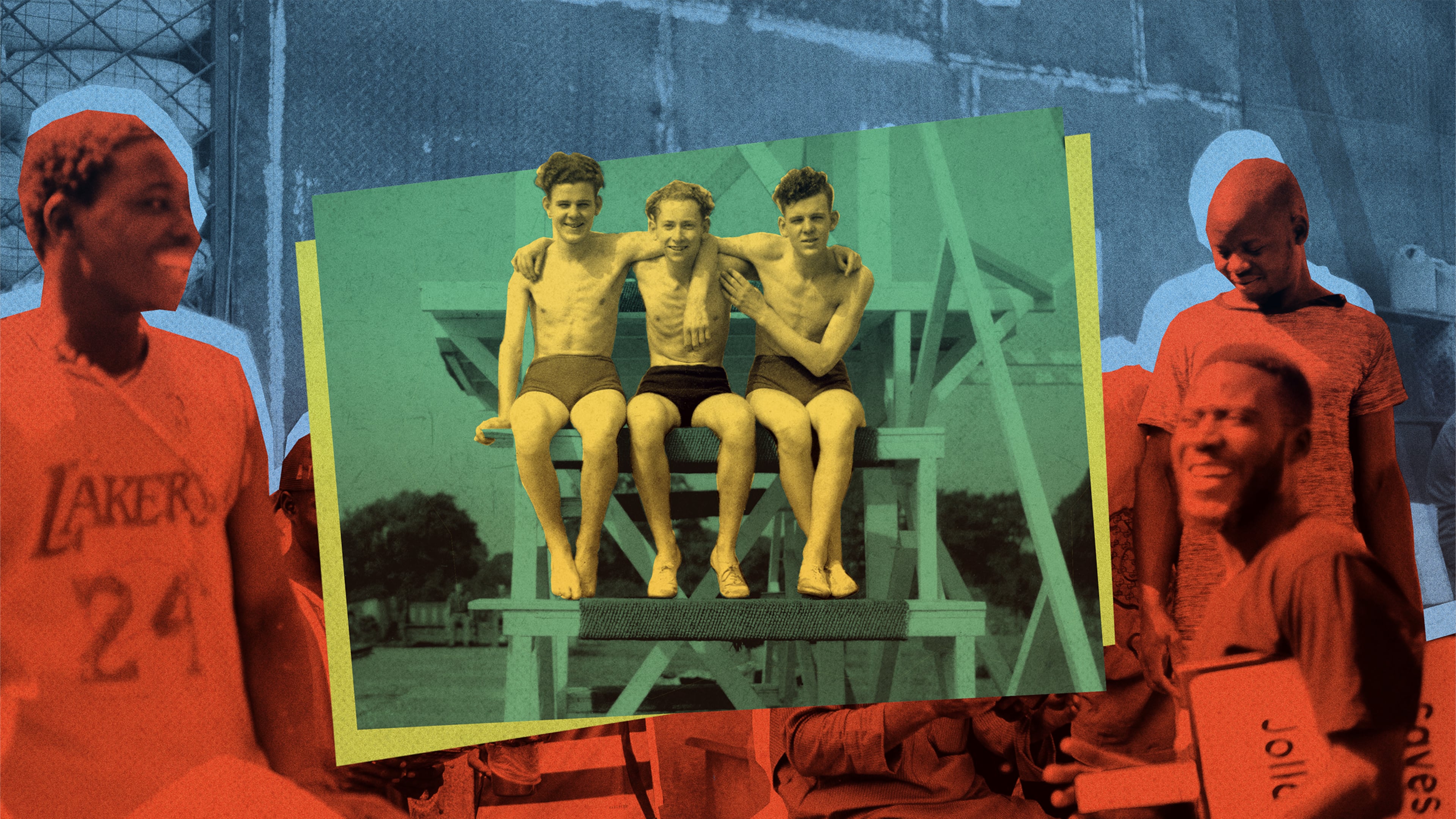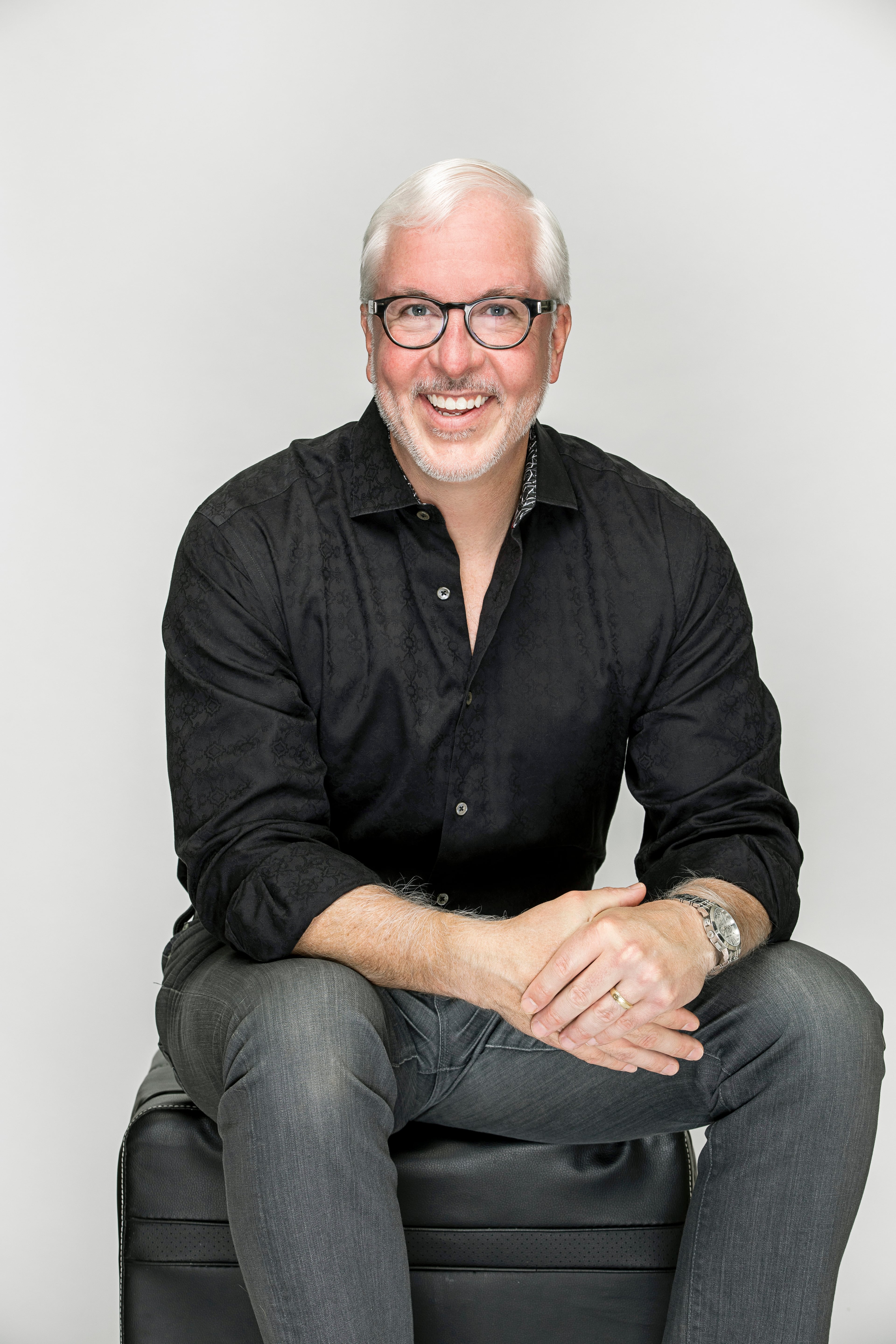Men are expected to be stoic, but break the ‘man rules’ to heal and thrive

We men are told to be stoic, self-reliant and selfless when times are tough.
Boys don’t cry. Bite the bullet. Man up.
We learn that a good father and husband doesn’t complain, doesn’t voice his personal concerns or put himself first.
But what if those old-school ideas about manhood fail us men? Especially when we’re hurting and confronting life-threatening challenges?
The two of us authors have faced serious physical and mental health hurdles. The conventional playbook of pretending we’re fine, ignoring pain and soldiering on didn’t serve us — and actually put us at greater risk.
To heal, we had to break the traditional “man rules.”
Brandon’s Story: From ‘near-martyr’ to reinventing what it means to be a man
Years of toxic family relationships left Brandon feeling isolated and unsupported.

As a trained counselor and executive coach based in the Atlanta suburb of Roswell, he could see his own depression setting in as a result of unhealthy, one-sided relationships.
Brandon had deprioritized himself for his family.
Brandon’s extended family interpreted his selflessness as carte blanche for any want they may have.
From paying tax bills and annual health insurance premiums to repeatedly providing emotional support and emergency housing, Brandon found himself as the de facto safety net for any family member’s poor choices.
These same family members treated Brandon as if his needs, wants and feelings were irrelevant.
These lopsided, all-take-and-no-give relationships played into Brandon’s self-image of a man as a near-martyr. If only he could be a better son or a more perfect in-law, he’d earn the love and respect of family members.
But despite decades of trying to prove himself, providing a listening ear and cash bailouts, the painful dynamic didn’t change.
Finally, Brandon made the choice to speak authentically with others about his struggles. And found more support than he expected.
Brandon rewrote what it meant to be a man and removed those from his life who didn’t see him as anything other than a resource to use.
At age 51, he’s happier than ever.
Ed’s story: Being vulnerable and melting the ‘tough guy’ veneer
Trying to be a tireless provider put Ed in the hospital in 2021.

He had a minor heart attack.
It was likely caused by the stress of making a living as an independent consultant, juggling 20 different projects, and trying to keep his wife and two kids safe during the COVID pandemic.
In the hospital, Ed at first cracked jokes and played it cool. Then a doctor put her hand on Ed’s shin. “I know this is a lot to take in. But we’re going to take care of you.”
Her gentle touch melted Ed’s “tough guy” veneer. Tears streaked down his face. He felt afraid of dying and gratitude for being in good hands.
Surrendering to the care of doctors and the support of family and friends helped Ed recover quickly. His heart has been healthy ever since.
But earlier this year, another health challenge arose. Ed was diagnosed with stage-four appendix cancer. The odds of surviving are decent, but Ed faces a grueling, yearlong treatment plan.
Once again, seeking help and sharing his concerns are helping Ed heal.
This includes Ed’s initial decision to go to the emergency room in April. By taking the pain he felt in his abdomen seriously, Ed may have saved his life. Scans allowed doctors to detect the cancer before it had spread far.
Tough and tender: Embrace compassion, connection and the courage to be authentic
Men today may fear that other men will belittle them for admitting emotional or physical wounds. A throwback, “hard” version of masculinity has been surging worldwide, found in the popularity of “manosphere” influencers.
But a cramped bravado that limits emotional expression doesn’t truly serve men. Research shows a sexist, macho mindset tends to inhibit men’s “ability to be emotionally vulnerable and form deep connections.” Similarly, old-school masculinity can keep men from seeking the medical help they need, like going to the hospital during a heart attack.
Both of us were nervous about sharing our struggles with other men. But when we exposed our tender side to male friends and colleagues, they didn’t mock us. We found concern and care from almost all of them. They include “tough” guys you might have expected to dismiss us: military veterans, blue collar workers and finance executives.
The data and our lived experiences point to the same conclusion: Men seeking to heal from major health challenges must bust out of a confined, unhealthy version of manhood.
We must embrace compassion, connection and the courage to be authentic — especially with other men. When we do, we are better equipped to survive threats to our well-being and live bigger, happier lives.
Brandon Smith is an executive coach based in Roswell, Georgia, as well as the author of books including “The Hot Sauce Principle: How to Live and Lead in a World Where Everything Is Urgent All of the Time.”
Ed Frauenheim is a speaker, consultant and author of books including “Reinventing Masculinity: The Liberating Power of Compassion and Connection.”


